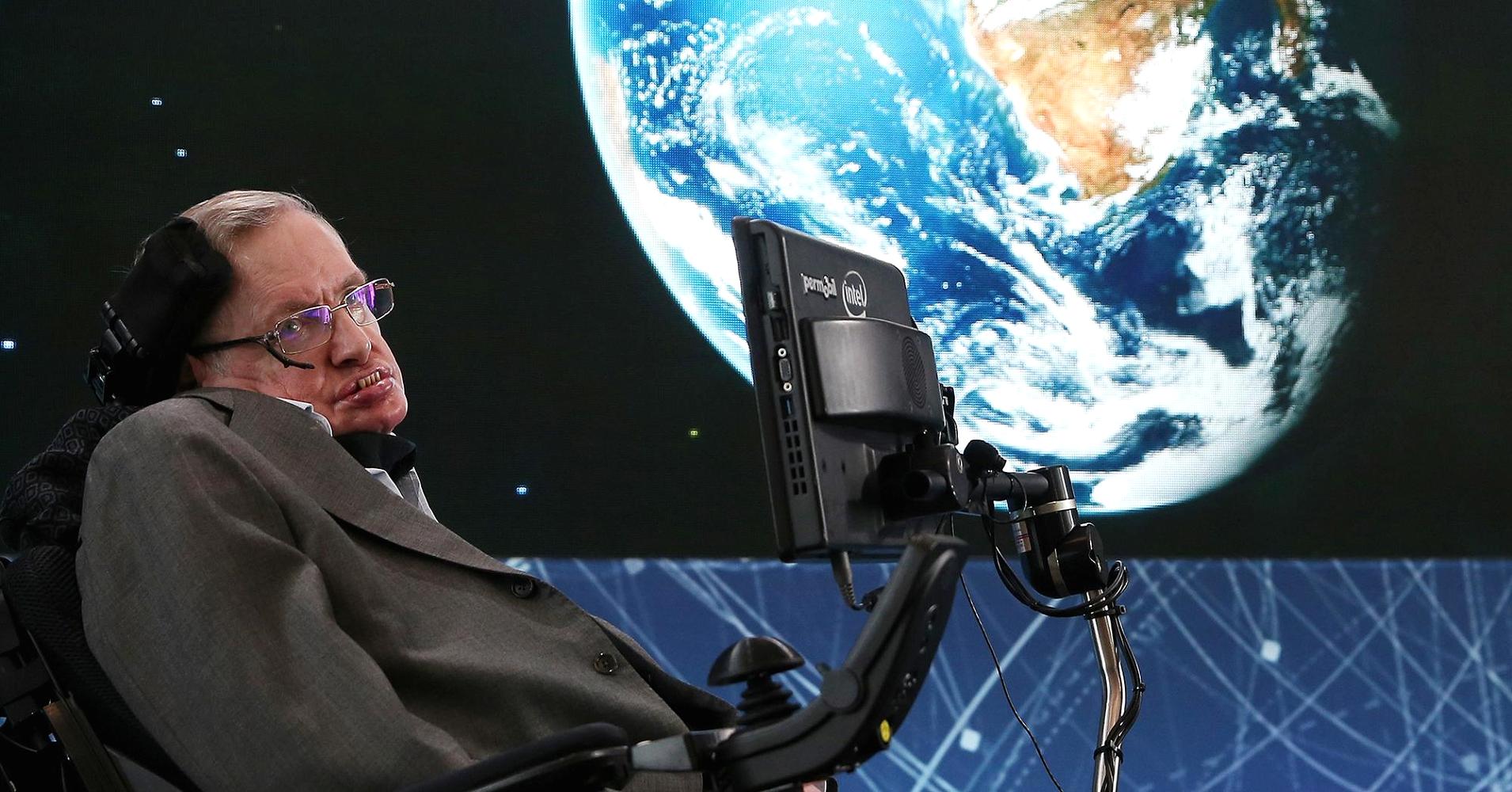
Stephen Hawking was well-known for his work on black holes and the theory of relativity. But, the famous physicist, who passed away on Wednesday at the age of 76, also had some predictions about the future, ranging from topics such as aliens to the end of the world.
Here are some of his most famous predictions.
Hawking theorized that humans would turn the planet into a giant ball of fire by 2600 due to overcrowding and energy consumption which will make Earth uninhabitable.
As a result, humans will need to go to live on another planet. Hawking said humans will need to colonize another planet within 100 years or face extinction.
“With climate change, overdue asteroid strikes, epidemics and population growth, our own planet is increasingly precarious,” he said in a BBC documentary last year.
Hawking is part of the Breakthrough Starshot initiative, which plans to develop ultra-fast light-powered spacecraft that can look for habitable worlds that might be circling the nearby star, Alpha Centauri.
“Such a system could reach Mars in less than an hour, or reach Pluto in days, pass Voyager in under a week and reach Alpha Centauri in just over 20 years,” Hawking said at the event.
Hawking’s thoughts were similar to SpaceX and Tesla CEO Elon Musk. He said last year that there will be an “extinction event” if humans stay on Earth, according to an article in the journal New Space. Musk has made it clear that he believes that Mars could be a good alternative to Earth.
In November last year, Hawking said the emergence of artificial intelligence (AI) could be the “worst event in the history of our civilization,” unless society finds a way to control its development.
The physicist did say that the technology could help eradicate poverty and disease, but admitted its future is uncertain.
“Success in creating effective AI, could be the biggest event in the history of our civilization. Or the worst. We just don’t know. So we cannot know if we will be infinitely helped by AI, or ignored by it and side-lined, or conceivably destroyed by it,” Hawking said during the speech.
“Unless we learn how to prepare for, and avoid, the potential risks, AI could be the worst event in the history of our civilization. It brings dangers, like powerful autonomous weapons, or new ways for the few to oppress the many. It could bring great disruption to our economy.”
In an interview with the BBC last July, Hawking warned that global warming could reach a point where it can’t be reversed.
“We are close to the tipping point where global warming becomes irreversible. (President Donald) Trump’s action could push the Earth over the brink, to become like Venus, with a temperature of two hundred and fifty degrees, and raining sulphuric acid,” Hawking said.
The scientist criticized Trump’s decision last year to pull out of the Paris climate agreement, saying that it would cause “environmental damage to our beautiful planet, endangering the natural world, for us and our children.”
Given that Hawking spent most of his life looking at space, it’s not surprising that he has pondered whether there are other lifeforms out there.
In 2015, Hawking joined Russian billionaire Yuri Milner to launch a project aimed at using high-powered computers to listen for aliens. The project, known as Breakthrough Initiatives, supports SETI@home, a scientific experiment based at the University of California, Berkeley. It uses computers to scan the skies to look for life.
“Somewhere in the cosmos, perhaps, intelligent life may be watching these lights of ours aware of what they mean,” Hawking said. “Or do our lights wander a lifeless cosmos, unseen beacons announcing that here on our rock, the universe discovered its existence?.”
—CNBC’s Robert Ferris contributed to this report.
